With ovodonation women incapable of having children get a chance to gestate an embryo with the use of a donated egg and their partner’s sperm. Or they may opt for semen from the GENESIS sperm bank.
What is Egg Donation?
It is an assisted reproductive treatment involving an in vitro fertilization (IVF) with donor’s eggs. This technique enables pregnancy in women who for any reasons cannot use their own eggs. After being fertilized with the partner´s or donor's sperm, the eggs pass the selection process and then get transferred into the patient’s uterus. Thus, oocyte donation enables women incapable of having children on their own to create the miracle of life.
When is it used?
The procedure may be performed with a sperm sample from a donor or the patient’s partner. This kind of treatment is recommended for:
- Women over 35 years of age.
- Women who suffered repeated miscarriages.
- Women who suffer from undetectable hereditary diseases that affect oocytes.
- Women after ovarian surgery or with oocytes impossible to procure from the ovaries.
- Women after several consecutive failures of in vitro fertilization cycles.
- Women suffering from ovarian failure (caused by menopause or else), or onsetting menopause (less than 40 years old).
- Women who suffer from poor quality of oocytes.
Success rates
Age is the main factor that affects fertilityб since nowadays many women tend to postpone motherhood. After the age of 35, female fertility sees a sharp decline. After 40 the chances of getting pregnant are very limited.
Donor’s eggs perform better than a patient's own in terms of pregnancy rates. At the same time the patient gets a chance to bear a child herself. Even now this kind of assisted reproductive treatment shows the highest success rates.
The pregnancy rates are annually assessed by an accredited body (RAHR). Many factors influence the probability of pregnancy: medical and reproductive history, age, ovarian reserve, and more. We can be sure of one thing at GENESIS — the treatment prescribed by our fertility specialists will be the most professional and personalized and with the use of the most advanced technology. This will lead us to our goal — your pregnancy.
 First visit
First visit
The first step is always your visit at one of our clinics. Then our experts provide you with a personalised diagnosis and recommend the treatment best suited to your case. During the first visit, the patient's medical record will be analyzed, as well as all the reports on prior treatments if any. The consultation is followed by a full gynaecological examination and a sperm analysis for couples. At this point a sample of sperm can be frozen and stored to be used in fertilization later.
Donor matching: Perfect Match
Perfect Match technology that governs the process of egg donation is always at the service of GENESIS´s patients. It is an innovative system that makes sure that the most suitable donor is chosen.
The system includes:
- Phenotype analysis
- GENESIS Biometric Scan
- Genetic analysis
The process enables us to consider a variety of factors other than appearance (i.e. eye colour and height) and the compatibility of blood type and Rh factor. GENESIS Biometric Scan adds facial resemblance to this list. It is based on a software evaluating the resemblance on a scale from 1 to 100. A Compatibility Genetic Test (CGT) is mandatory for all the donors at the selection stage. This allows us to detect the genes that are likely to provoke genetic diseases (up to 600 diseases can be detected).
Ovarian stimulation
The process of fertilization of the donor's egg with sperm sample from a partner or a donor is carried out in our laboratory. Another important step is a 10-days fertility medication that the patient needs to undergo while still at home to prepare the uterus and minimize the chance of rejection of the embryo. The medical team monitors this treatment at all times by means of ultrasound scans and blood test results.
Transfer
The transfer will be performed by our specialists. The best embryo will be introduced into the woman's uterus via a cannula, that makes it easier to access the perfect spot for implantation. The procedure causes no pain and does not require anesthesia. After a 5-minutes rest the patient may return home on the same day and resume her day-to-day activities.
Pregnancy test
The patient will take a blood pregnancy test 11 days after the transfer. In case of a positive result the patient will take a control ultrasound scan 20 days later. This will serve as a basis for GENESIS to discharge you and let you proceed with your pregnancy under the supervision of your local doctor or midwife.


